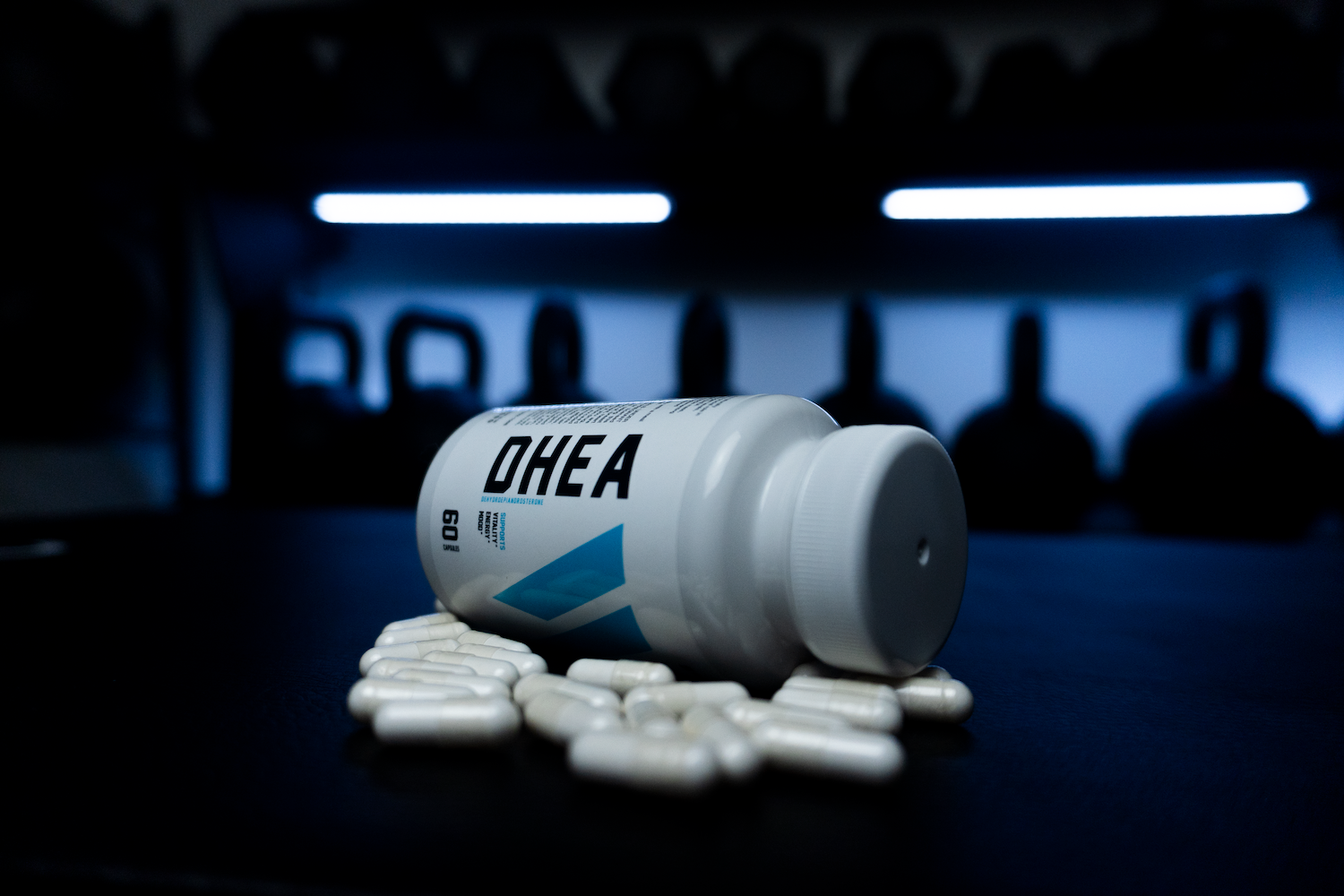In the quest for optimal health, understanding the roles of various hormones and nutrients is vital. Two terms that often get confused are DHEA and DHA, each essential but serving distinctly different purposes in your body. DHEA, or dehydroepiandrosterone, is a hormone produced by the adrenal glands, playing a crucial role in hormone balance, mood regulation, and energy levels.
On the other hand, DHA, or docosahexaenoic acid, is a type of omega-3 fatty acid primarily found in fish oils, vital for brain health, cardiovascular support, and reducing inflammation. As more people turn to supplements for wellness, distinguishing between DHEA and DHA becomes crucial for making informed health decisions.
In this article, we will unravel the key differences between these two powerful compounds, helping you navigate their unique benefits and contributions to your overall well-being. Understanding their distinct roles is the first step to enhancing your health journey.
What is DHEA?
Understanding the Hormonal Precursor to Testosterone and Estrogen
Dehydroepiandrosterone (DHEA) is a naturally occurring hormone primarily produced by the adrenal glands, located just above the kidneys. As one of the most abundant circulating steroids in the human body, DHEA functions as a precursor hormone—meaning it serves as a building block for other key hormones such as testosterone and estrogen.
Why DHEA Levels Matter
DHEA levels typically peak during early adulthood and then gradually decline with age, which has led to its increasing popularity as an anti-aging supplement. Age, sex, and overall health all influence how much DHEA your body produces. For example, men typically have higher DHEA levels than women. Additionally, chronic stress can disrupt DHEA production, as the adrenal glands also release cortisol, the body’s primary stress hormone. This can contribute to hormonal imbalances and affect overall well-being.
📚 According to research published by Orentreich et al. in the Journal of Clinical Endocrinology & Metabolism (1984), DHEA levels decrease approximately 80% between the ages of 25 and 75.
Health Benefits and Controversy of DHEA Supplementation
With its role in hormone production, DHEA supplementation has been studied for potential benefits including:
-
Anti-aging effects
-
Improved mood and cognitive function
-
Enhanced immune support
-
Increased physical performance
However, DHEA supplementation remains controversial, particularly due to potential side effects and the lack of long-term safety data. Consulting a healthcare professional before supplementing is highly recommended, especially for those with hormone-sensitive conditions.
🧠 A systematic review published in Drugs & Aging found that while DHEA may offer mild improvements in mood and well-being, the evidence is inconsistent and dosage-dependent (Labrie et al., 2009).
What is DHA?
The Essential Omega-3 Fatty Acid for Brain and Heart Health
Docosahexaenoic acid (DHA) is a long-chain omega-3 fatty acid that plays a vital role in maintaining the structural integrity and function of cell membranes, especially in the brain and eyes. Unlike DHEA, which is a hormone, DHA is a fat—predominantly found in fatty fish and marine algae.
Why DHA is Essential for Human Health
DHA is classified as an essential fatty acid, which means the body cannot synthesize it in adequate amounts on its own. Therefore, it must be consumed through diet or supplementation.
Key dietary sources of DHA include:
-
Fatty fish (salmon, mackerel, sardines)
-
Fish oil supplements
-
Algae-based supplements (suitable for vegans and vegetarians)
🐟 The American Heart Association recommends consuming fatty fish at least twice a week to support cardiovascular health.
DHA and Brain, Vision, and Cardiovascular Support
The significance of DHA spans all life stages—from fetal development to cognitive longevity. Adequate DHA levels during pregnancy are linked to better visual and neurological development in infants. In adults, DHA supports memory, focus, and helps reduce systemic inflammation.
Additionally, research suggests DHA may lower the risk of:
-
Heart disease
-
Alzheimer’s disease
-
Certain cancers
🧬 A 2016 meta-analysis in PLOS ONE found a strong association between DHA intake and improved cognitive performance in older adults (Yurko-Mauro et al., 2016).
The Role of DHEA in the Body
A Critical Hormonal Precursor for Immunity, Mental Health, and Muscle Function
Dehydroepiandrosterone (DHEA) serves several important functions in the body, primarily through its conversion into other hormones. As a precursor to both testosterone and estrogen, DHEA contributes to the regulation of multiple physiological processes, including reproductive health, bone density, and muscle mass. This hormonal conversion makes DHEA a key component of the endocrine system.
DHEA and Immune Health
One of the most significant roles of DHEA is its impact on the immune system. Studies indicate that DHEA possesses immune-enhancing properties, potentially improving the body’s ability to fight infections, particularly in older adults, whose immune function tends to decline with age.
🧪 Research published in Journal of Clinical Endocrinology & Metabolism shows that DHEA supplementation may improve immune response in aging populations (Khorram et al., 1997).
DHEA and Mental Health
DHEA also plays a crucial role in mental health and cognitive function. Low levels of DHEA have been linked to mood disorders such as depression and anxiety. Some clinical studies suggest that DHEA supplementation may provide antidepressant effects, helping to elevate mood and reduce symptoms of depression.
🧠 A double-blind study published in Archives of General Psychiatry found that DHEA improved depressive symptoms in patients with midlife-onset major and minor depression (Wolkowitz et al., 1999).
Additionally, DHEA is thought to protect against age-related cognitive decline, enhancing memory and mental performance in older adults.
The Role of DHA in the Body
A Foundational Omega-3 for Brain, Eye, and Heart Health
Docosahexaenoic acid (DHA) is an essential omega-3 fatty acid that plays a structural and functional role in the brain, eyes, and cardiovascular system. Unlike DHEA, which is a hormone, DHA is a fatty acid that must be obtained through the diet or supplementation due to limited endogenous production.
DHA and Brain Function
In the brain, DHA is a major component of neuronal cell membranes, influencing their fluidity, signaling, and neurotransmitter function. Adequate DHA intake is essential for:
-
Cognitive development
-
Neuroprotection
-
Mental health maintenance
DHA deficiency has been associated with impaired cognitive function and may increase the risk of neurodegenerative diseases, including Alzheimer’s disease.
🧬 According to a meta-analysis in Nutrients, DHA supplementation supports memory and learning in both young and aging populations (Yurko-Mauro et al., 2015).
DHA and Eye Health
DHA is also a vital structural component of the retina, making it essential for visual development and function. Its role is especially critical during pregnancy and infancy, when the eyes are rapidly developing.
👁 The American Academy of Pediatrics recommends that infants receive adequate DHA for optimal retinal and brain development (AAP Policy Statement).
A deficiency in DHA during this stage can lead to impaired vision and developmental delays.
DHA and Cardiovascular Support
DHA also supports heart health by maintaining the integrity of cell membranes in the heart and blood vessels. Its benefits include:
-
Reducing triglycerides
-
Lowering blood pressure
-
Decreasing inflammation
-
Preventing arrhythmias
These effects make DHA a key part of a heart-healthy lifestyle.
❤️ A clinical review in Current Atherosclerosis Reports found that DHA significantly reduces cardiovascular risk factors (Mozaffarian & Wu, 2011).
Key Differences Between DHEA and DHA
Structure, Sources, and Roles in Human Health
Although DHEA (dehydroepiandrosterone) and DHA (docosahexaenoic acid) may sound similar, they are fundamentally different in chemical structure, biological function, and origin.
-
DHEA is a steroid hormone synthesized by the adrenal glands and functions as a precursor to testosterone and estrogen.
-
DHA is a long-chain omega-3 fatty acid found in fatty fish, fish oil, and algae, and is vital for cell membrane integrity, especially in the brain, eyes, and heart.
Functional Distinctions
DHEA plays a regulatory role by influencing hormonal balance, which in turn impacts:
-
Reproductive health
-
Muscle mass
-
Bone density
On the other hand, DHA acts primarily as a structural lipid:
-
In the brain, it supports cognitive performance and neuroprotection
-
In the eyes, it ensures visual acuity and retinal health
-
In the heart, it contributes to vascular integrity and lipid regulation
Source and Supplementation Differences
| Compound | Origin | Supplement Source | Peak Production |
|---|---|---|---|
| DHEA | Endogenously produced | Synthetic supplement | Early adulthood |
| DHA | Dietary intake required | Fish oil, algae-based | Must be consumed regularly |
Because DHEA is internally produced, its decline with age has sparked interest in supplementation for hormone-related support. Conversely, DHA must be obtained from the diet, underscoring the importance of omega-3-rich foods or supplements for lifelong health.
Health Benefits of DHEA
Hormonal Support, Skin Health, and Mental Clarity
DHEA has been widely studied for its potential to improve hormone balance, particularly in individuals with adrenal insufficiency, menopausal symptoms, or age-related hormone decline.
Hormonal Balance and Energy
As a precursor to testosterone and estrogen, DHEA supplementation may help improve:
-
Energy levels
-
Libido
-
Mood stability
🔬 Research published in The Journal of Clinical Endocrinology & Metabolism shows that DHEA may improve physical and psychological well-being in older adults (Morales et al., 1994).
Anti-Aging and Bone Density
DHEA is often promoted for its anti-aging properties. Studies suggest it can:
-
Increase skin hydration and thickness
-
Improve skin elasticity
-
Support bone mineral density, especially in postmenopausal women
🦴 A randomized trial published in Clinical Endocrinology found that DHEA supplementation increased spinal bone mineral density in women over 60 (Baulieu et al., 2000).
Mental Health and Cognitive Benefits
DHEA also supports mental health and may offer neuroprotective effects. Low levels are associated with:
-
Depression
-
Anxiety
-
Memory decline
🧠 A study in Biological Psychiatry reported that DHEA significantly reduced depressive symptoms in middle-aged adults with major depression (Schmidt et al., 2005).
Health Benefits of DHA
Brain Development, Visual Health, and Cardiovascular Protection
DHA is essential for lifelong health, and its benefits are especially significant during:
-
Prenatal development
-
Childhood
-
Older adulthood
Brain Health and Cognitive Development
DHA plays a central role in brain structure and signaling. It has been shown to:
-
Improve memory and learning
-
Support focus and attention
-
Protect against cognitive decline
🧬 A review in Nutrients concluded that DHA supplementation improves cognition in both young and aging adults (Yurko-Mauro et al., 2015).
Eye Health and Visual Function
DHA is highly concentrated in the retina. Adequate DHA intake during pregnancy and early childhood is critical for:
-
Visual development
-
Retinal integrity
-
Reduced risk of macular degeneration
👁 According to the American Academy of Ophthalmology, DHA may protect against age-related macular degeneration (AAO Clinical Update).
Cardiovascular Support and Inflammation Reduction
DHA has been extensively researched for its role in cardiovascular health. Key benefits include:
-
Lower triglyceride levels
-
Reduced blood pressure
-
Decreased risk of arrhythmias
-
Anti-inflammatory effects
❤️ The American Heart Association supports omega-3 (including DHA) intake for reducing heart disease risk (AHA Recommendations).
Risks and Considerations for DHEA and DHA Supplementation
Understanding Safety, Side Effects, and Medical Interactions
While both DHEA and DHA offer impressive health benefits, responsible supplementation requires an understanding of potential risks, side effects, and interactions with medications.
DHEA Supplementation Risks
Hormonal Imbalances and Side Effects
DHEA supplementation can disrupt hormonal balance if not used with medical supervision. Elevated levels of testosterone or estrogen caused by excessive DHEA intake may lead to:
-
Acne
-
Hair loss
-
Menstrual irregularities in women
-
Mood swings or aggression
⚠️ A study published in Menopause found that DHEA supplementation in postmenopausal women increased serum androgen levels and resulted in mild androgenic side effects (Casson et al., 1998).
Additionally, individuals with or at risk for hormone-sensitive conditions, such as breast, prostate, or ovarian cancers, should avoid DHEA supplementation unless prescribed by a physician.
Medication Interactions and Health Conditions
DHEA may also interact with several medications, including:
-
Hormone replacement therapy (HRT)
-
Antidiabetic drugs
-
Cardiovascular medications
These interactions can affect blood sugar control, blood pressure, and overall hormone levels.
💊 According to the National Institutes of Health, DHEA can affect drug metabolism by influencing liver enzymes (CYP450), leading to increased or decreased drug levels in the body (NIH ODS Fact Sheet).
Monitoring hormone levels with regular lab tests and working with a qualified healthcare provider is crucial to ensure safe and effective DHEA use.
DHA Supplementation Risks
Gastrointestinal Issues and Medication Conflicts
DHA is generally considered safe and well-tolerated, but high-dose supplementation—particularly via fish oil capsules—can cause mild side effects such as:
-
Nausea
-
Diarrhea
-
Fishy aftertaste or burps
Moreover, fish oil-derived DHA may increase the risk of bleeding, especially when taken in combination with:
-
Blood-thinning medications (e.g., aspirin, warfarin, clopidogrel)
-
NSAIDs (e.g., ibuprofen)
🩸 A meta-analysis published in Circulation reported that omega-3 supplements can slightly prolong bleeding time, although serious complications are rare (Kris-Etherton et al., 2002).
Allergies and Plant-Based Alternatives
For individuals with seafood allergies, traditional fish oil supplements may cause adverse allergic reactions. In such cases, algae-based DHA supplements are a safe, plant-based alternative with comparable efficacy.
Summary
While DHEA and DHA supplementation can offer targeted health benefits, they also come with unique risks that require personalized guidance, especially for individuals:
-
Taking prescription medications
-
Managing chronic health conditions
-
Experiencing hormonal imbalances
-
Sensitive to fish-derived products
Always consult a healthcare provider before adding these supplements to your regimen, and consider routine blood testing to track efficacy and safety.
Conclusion: Which is Right for You?
Deciding between DHEA and DHA supplementation depends on your individual health needs and goals. DHEA may be beneficial for those looking to address hormonal imbalances, improve mood and energy levels, or support bone and skin health. However, it is essential to approach DHEA supplementation with caution and under the guidance of a healthcare professional to avoid potential side effects and interactions.
On the other hand, DHA is a critical nutrient for brain, eye, and heart health, making it a valuable addition to the diet for individuals of all ages. Ensuring adequate DHA intake through dietary sources or supplements can support cognitive function, visual health, and cardiovascular wellness. For those who do not consume enough fatty fish, DHA supplements can provide a convenient and effective way to meet nutritional needs.
Ultimately, the choice between DHEA and DHA supplementation should be based on a thorough understanding of their distinct roles and benefits, as well as your specific health objectives. Consulting with a healthcare provider can help you make an informed decision and create a personalized plan that supports your overall well-being. By understanding the key differences between DHEA and DHA, you can take proactive steps toward optimizing your health and enhancing your quality of life.













